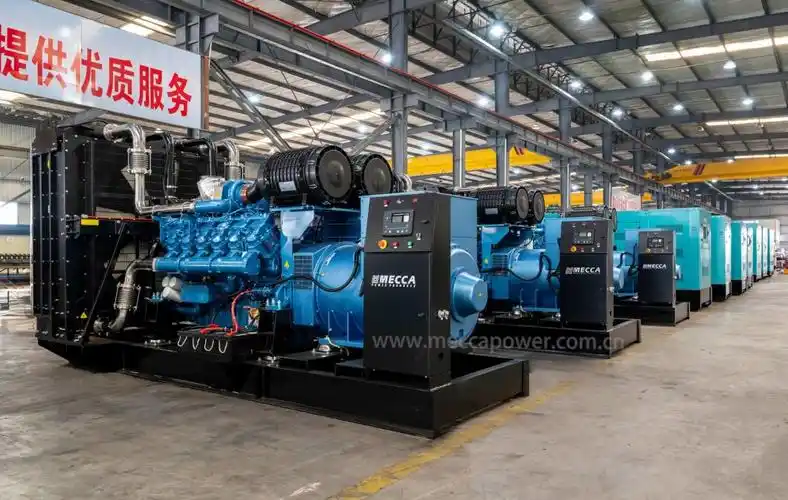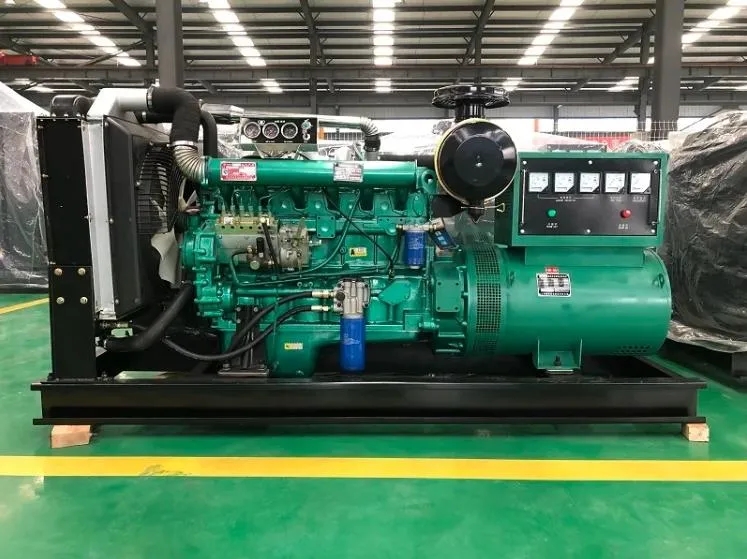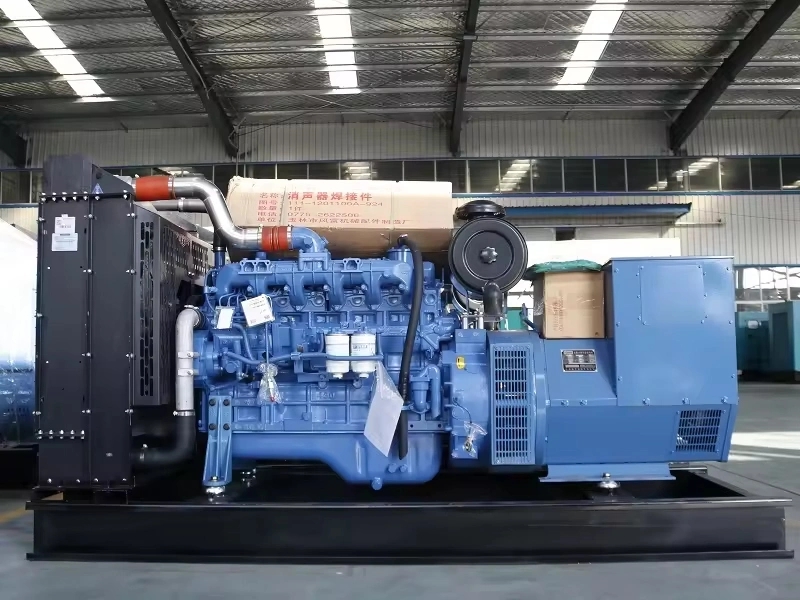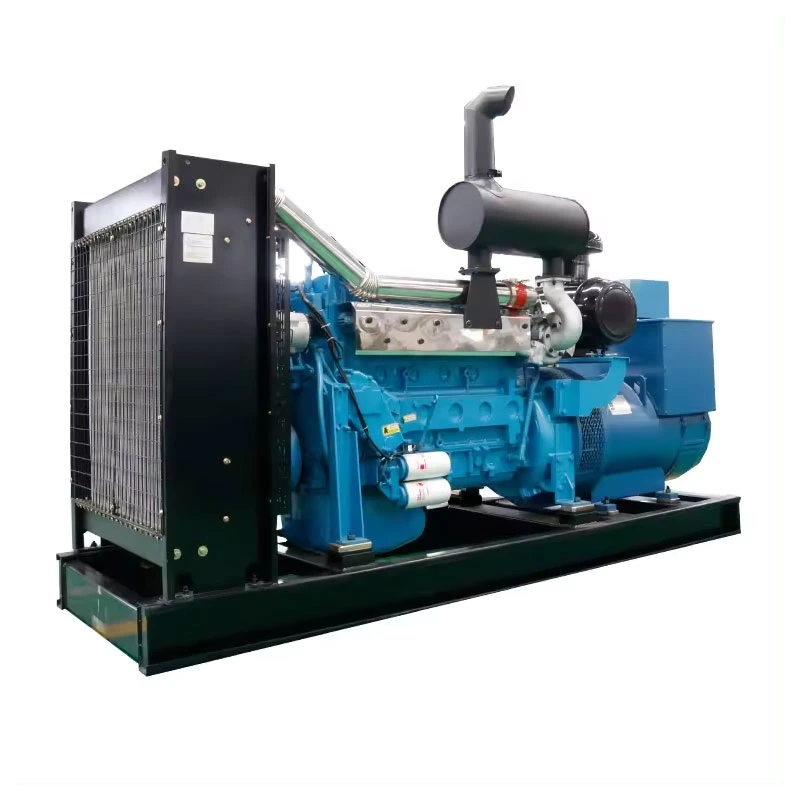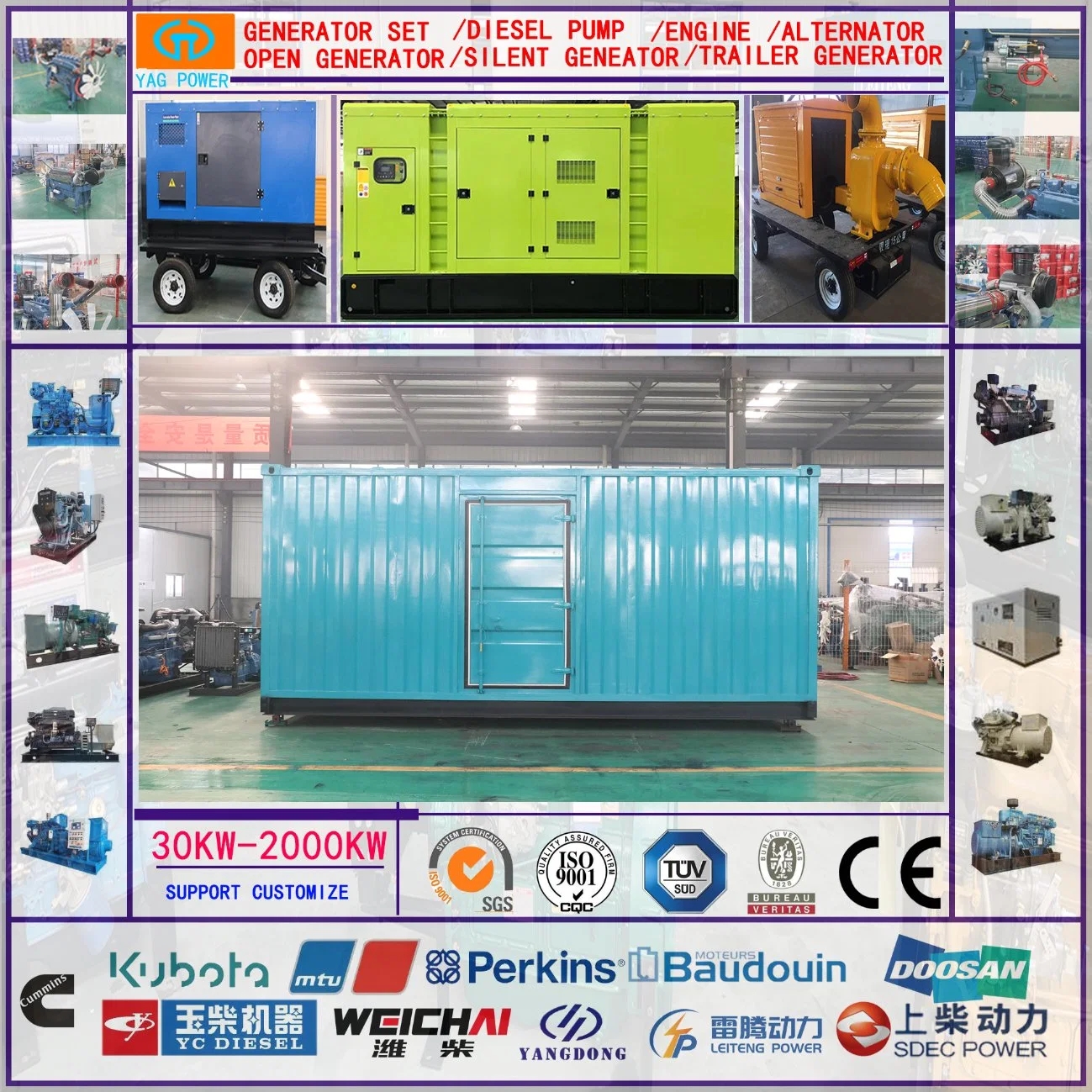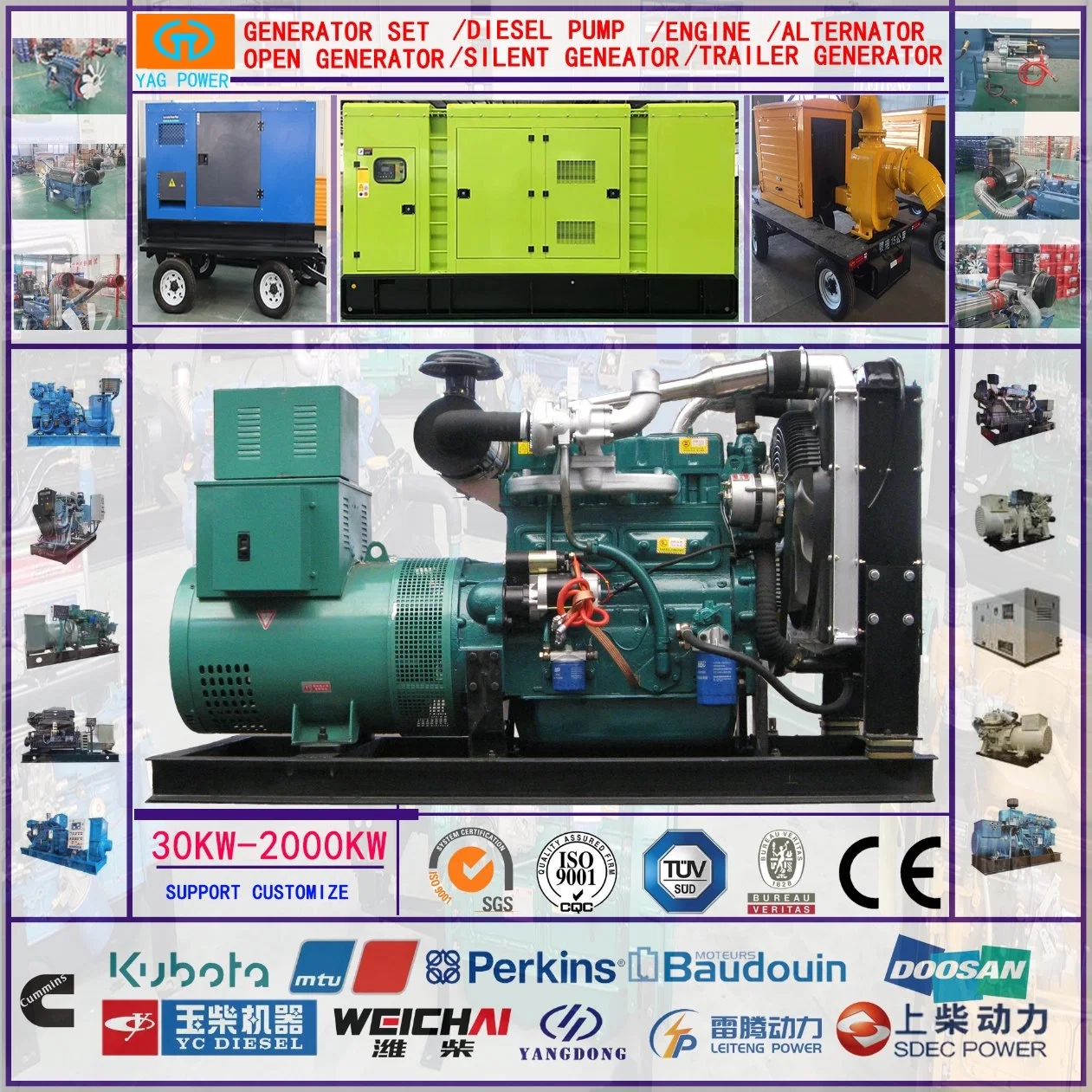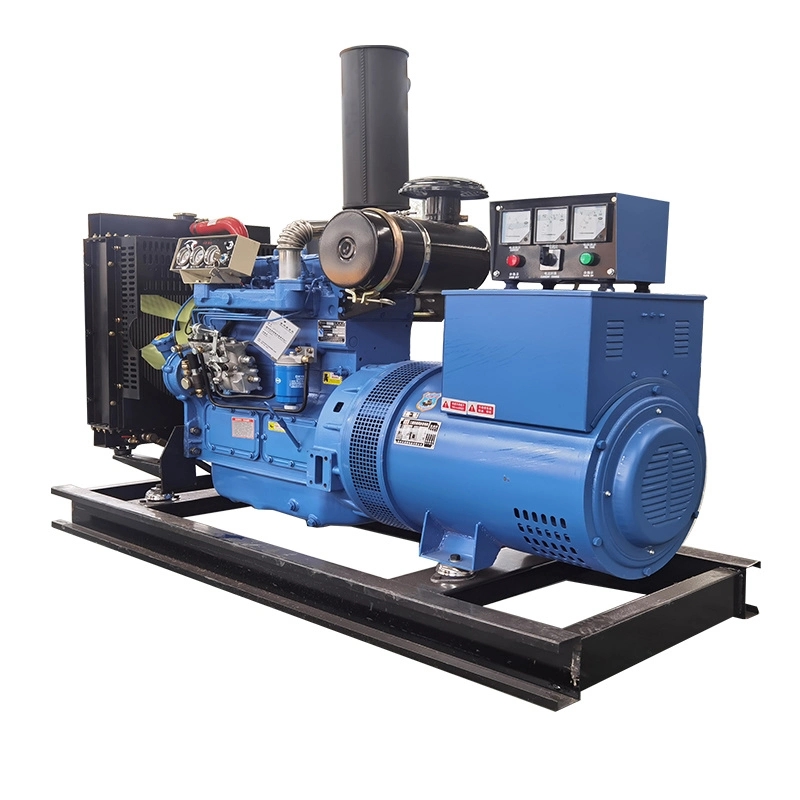Table of Contents
Toggle
Introduction
Are you in the market for a reliable power source? Look no further! A 150kW diesel generator might just be the solution you’re searching for. In this comprehensive guide, we’ll dive into everything you need to know about these robust machines. From their key features and applications to installation tips and future trends, we’ve got you covered. Whether you’re an industrial player, a business owner, or someone who wants a dependable backup power supply for your home, this guide will help you make an informed decision.
What is a 150kW Diesel Generator?
So, what exactly is a 150kW diesel generator? Simply put, it’s a power generator that uses diesel fuel to produce up to 150 kilowatts of electricity. These generators are known for their durability and efficiency, making them ideal for various applications. Diesel engines are combustion engines that use compressed air to ignite the fuel, which makes them more efficient than gasoline engines.
A 150kW diesel generator is essentially a robust machine that combines an engine with an alternator to convert mechanical energy into electrical energy. The engine runs on diesel fuel, which is burned in a controlled environment to produce mechanical power. This mechanical power drives the alternator, which then generates electricity.
Why Choose a 150kW Diesel Generator?
Why should you consider a 150kW diesel generator over other options? The answer lies in its combination of power, reliability, and efficiency. These generators are built to last and can handle substantial loads, making them perfect for both commercial and industrial use. They are also more fuel-efficient compared to gasoline generators, meaning you’ll get more power for less fuel.
Diesel generators are known for their longevity and ability to run for extended periods without requiring frequent maintenance. This makes them ideal for applications where reliability is crucial. Additionally, diesel fuel is generally safer to store and handle compared to gasoline, reducing the risk of fire hazards.
Key Features of a 150kW Diesel Generator
Before you make a decision, it’s crucial to understand the key features that set these generators apart. Let’s break them down:
Technical Specifications
Understanding the technical specifications is the first step in making an informed decision. A typical 150kW diesel generator will have specifications like engine type, alternator type, fuel tank capacity, and overall dimensions. These specs give you an idea of the generator’s capabilities and limitations.
Power Output
The most obvious feature is the power output. A 150kW diesel generator provides a steady and reliable source of electricity, capable of powering large facilities or critical systems during outages. This level of power output can support multiple heavy-duty appliances, machinery, or even entire buildings.
Fuel Efficiency
One of the standout features of diesel generators is their fuel efficiency. Compared to gasoline generators, diesel units consume less fuel while delivering more power. This means lower operational costs over time and fewer interruptions for refueling.
Noise Levels
Modern diesel generators are designed to minimize noise. While they aren’t completely silent, advancements in technology have made them quieter than ever before. Noise levels are an important consideration, especially if the generator will be used in residential areas or places where noise pollution is a concern.
Applications of 150kW Diesel Generators
Where can you use a 150kW diesel generator? The possibilities are nearly endless.
Industrial Uses
In industrial settings, these generators are invaluable. They can power heavy machinery, ensure continuous production processes, and provide backup during power outages. Industries like manufacturing, mining, and construction often rely on these generators for their energy needs.
Commercial Uses
For businesses, a 150kW diesel generator can keep operations running smoothly. Whether it’s a retail store, office building, or data center, having a reliable power source is essential. These generators can ensure that critical systems like lighting, HVAC, and security remain operational during power outages.
Residential Uses
While less common, some large residential properties also benefit from these generators. They can provide peace of mind during storms or other events that might disrupt the power supply. For homes with extensive electrical needs or those located in areas prone to power outages, a 150kW diesel generator can be a lifesaver.
Advantages of Using a 150kW Diesel Generator
What makes these generators so advantageous? Let’s explore some of the key benefits:
Reliability and Durability
Diesel generators are built to withstand tough conditions. Their robust construction ensures they can operate in various environments without frequent breakdowns. This reliability makes them ideal for critical applications where downtime is not an option.
Cost-Effectiveness
Over time, the cost savings from fuel efficiency and low maintenance can make diesel generators more economical than their gasoline counterparts. The initial investment might be higher, but the long-term savings make it worthwhile.
Low Maintenance
Speaking of maintenance, diesel generators require less upkeep compared to other types. This means fewer headaches and lower long-term costs for owners. Regular maintenance tasks like oil changes and filter replacements are relatively straightforward and infrequent.
How to Choose the Right 150kW Diesel Generator
Selecting the right generator involves more than just picking the first one you see. Here are some tips to help you make an informed choice:
Assessing Power Needs
Determine your power requirements before making a purchase. This will ensure you choose a generator that can handle your load without issues. Consider factors like peak load demand, continuous load demand, and any potential future increases in power needs.
Considering Brand Reputation
Not all generators are created equal. Research brands and read reviews to find one with a reputation for quality and reliability. Established brands often have better customer support and warranty options.
Evaluating Additional Features
Look for additional features that might be beneficial. These could include automatic start systems, remote monitoring capabilities, or enhanced fuel efficiency technologies. Additional features can add convenience and improve the overall performance of your generator.
Installation and Maintenance Tips for 150kW Diesel Generators
Proper installation and maintenance are key to getting the most out of your generator.
Proper Installation Practices
Ensure your generator is installed by professionals who understand the nuances of setting up these powerful machines. Proper installation can prevent future issues and extend the lifespan of your generator. Consider factors like location, ventilation, and electrical connections during installation.
Routine Maintenance Checks
Regular maintenance checks are essential. This includes monitoring fuel levels, checking for wear and tear, and ensuring all systems are functioning correctly. A well-maintained generator will run more efficiently and have a longer lifespan.
Environmental Impact of Diesel Generators
It’s important to consider the environmental impact. While diesel generators are efficient, they do produce emissions. However, advancements in technology are making them cleaner and more eco-friendly.
Future Trends in Diesel Generator Technology
What does the future hold for diesel generators? Expect continued improvements in fuel efficiency, noise reduction, and environmental impact. Innovations in hybrid systems that combine diesel with renewable energy sources are also on the horizon.
Conclusion
In conclusion, a 150kW diesel generator is a versatile and reliable power solution suitable for various applications. Whether you’re looking to power an industrial facility, keep your business running smoothly, or ensure your home is never left in the dark, these generators offer numerous benefits. By understanding their key features, applications, and maintenance needs, you can make an informed decision that meets your power requirements efficiently and effectively.
So, are you ready to invest in a 150kW diesel generator? With this guide in hand, you’re well-equipped to make the right choice!

Applications of 150kW Diesel Generators
The versatility of a 150kW diesel generator makes it an excellent choice for various applications. Let’s explore these in more detail:
Industrial Uses
In industrial settings, 150kW diesel generators are invaluable. They can power heavy machinery, ensure continuous production processes, and provide backup during power outages. Industries such as manufacturing, mining, and construction often rely on these generators for their energy needs.
Manufacturing
In manufacturing plants, a power outage can halt production lines, leading to significant financial losses. A 150kW diesel generator can ensure that production continues uninterrupted. These generators can power essential equipment such as conveyor belts, robotic arms, and other machinery critical to the manufacturing process.
Mining
Mining operations are often located in remote areas where the power grid is unreliable or nonexistent. A 150kW diesel generator provides the necessary power to operate drills, pumps, and other mining equipment. The durability and reliability of diesel generators make them well-suited for the harsh conditions often found in mining environments.
Construction
Construction sites require a reliable power source to operate tools, lighting, and temporary offices. A 150kW diesel generator can provide the necessary power to keep the project on track. From powering cranes and concrete mixers to providing electricity for safety lights and site offices, these generators are indispensable on construction sites.
Commercial Uses
For businesses, a 150kW diesel generator can keep operations running smoothly. Whether it’s a retail store, office building, or data center, having a reliable power source is essential.
Retail Stores
In retail environments, even a short power outage can result in lost sales and dissatisfied customers. A 150kW diesel generator ensures that lights, cash registers, and security systems remain operational. This not only prevents revenue loss but also maintains customer satisfaction.
Office Buildings
In office buildings, continuous power is crucial for maintaining productivity. Computers, servers, lighting, and HVAC systems all require electricity. A 150kW diesel generator provides a reliable backup power source, ensuring that employees can continue working without interruption.
Data Centers
Data centers house critical IT infrastructure that requires a constant power supply. Even a brief outage can lead to data loss and system downtime. A 150kW diesel generator provides the backup power needed to keep servers and other equipment running smoothly.
Residential Uses
While less common, some large residential properties also benefit from these generators. They can provide peace of mind during storms or other events that might disrupt the power supply.
Large Homes
For large homes with extensive electrical needs, a 150kW diesel generator can be a lifesaver. These generators can power HVAC systems, kitchen appliances, home theaters, and other essential systems during an outage.
Rural Properties
In rural areas where power outages are more frequent and prolonged, a 150kW diesel generator ensures that residents have a reliable power source. This is particularly important for properties that rely on well water pumps and other essential systems that require electricity.
Advantages of Using a 150kW Diesel Generator
Let’s delve deeper into the advantages of using a 150kW diesel generator:
Reliability and Durability
Diesel generators are built to withstand tough conditions. Their robust construction ensures they can operate in various environments without frequent breakdowns. This reliability makes them ideal for critical applications where downtime is not an option.
Heavy-Duty Construction
The heavy-duty construction of diesel generators means they can handle high loads and operate for extended periods without overheating or breaking down. This durability is especially important in industrial settings where the generator may be running continuously.
Long Engine Life
Diesel engines have a longer lifespan compared to gasoline engines. This longevity translates to fewer replacements over time, making diesel generators a cost-effective choice in the long run.
Cost-Effectiveness
Over time, the cost savings from fuel efficiency and low maintenance can make diesel generators more economical than their gasoline counterparts. The initial investment might be higher, but the long-term savings make it worthwhile.
Lower Fuel Costs
Diesel fuel is generally cheaper than gasoline on a per-unit basis. Additionally, diesel engines are more fuel-efficient, meaning you’ll use less fuel to generate the same amount of power.
Reduced Maintenance Costs
Diesel generators require less frequent maintenance compared to gasoline generators. This reduces ongoing maintenance costs and minimizes downtime for repairs.
Low Maintenance
Speaking of maintenance, diesel generators require less upkeep compared to other types. This means fewer headaches and lower long-term costs for owners. Regular maintenance tasks like oil changes and filter replacements are relatively straightforward and infrequent.
Simplified Maintenance Procedures
Diesel engines are simpler in design compared to gasoline engines. This simplicity translates to easier maintenance procedures and fewer components that can fail.
Extended Service Intervals
The robust construction of diesel engines means they can go longer between service intervals. This reduces the frequency of maintenance tasks and allows for more continuous operation.
How to Choose the Right 150kW Diesel Generator
Selecting the right generator involves more than just picking the first one you see. Here are some tips to help you make an informed choice:
Assessing Power Needs
Determine your power requirements before making a purchase. This will ensure you choose a generator that can handle your load without issues. Consider factors like peak load demand, continuous load demand, and any potential future increases in power needs.
Peak Load Demand
Peak load demand refers to the highest amount of power your facility will require at any given time. This is important for ensuring your generator can handle sudden spikes in electricity usage without overloading.
Continuous Load Demand
Continuous load demand refers to the average amount of power your facility requires on an ongoing basis. Ensuring your generator can handle this load will prevent issues with consistent power supply.
Considering Brand Reputation
Not all generators are created equal. Research brands and read reviews to find one with a reputation for quality and reliability. Established brands often have better customer support and warranty options.
Customer Reviews
Reading customer reviews can provide valuable insights into the performance and reliability of different generator models. Look for reviews from users with similar applications to your own.
Warranty Options
Consider the warranty options offered by different brands. A longer warranty period can provide peace of mind and protect your investment in case of any issues.
Evaluating Additional Features
Look for additional features that might be beneficial. These could include automatic start systems, remote monitoring capabilities, or enhanced fuel efficiency technologies. Additional features can add convenience and improve the overall performance of your generator.
Automatic Start Systems
An automatic start system ensures that your generator kicks in immediately when there’s a power outage. This is particularly useful for critical applications where even a brief loss of power can cause significant issues.
Remote Monitoring Capabilities
Remote monitoring capabilities allow you to keep an eye on your generator’s performance from anywhere. This is especially useful for facilities with multiple locations or for those who want to ensure their generator is running smoothly without being physically present.
Installation and Maintenance Tips for 150kW Diesel Generators
Proper installation and maintenance are key to getting the most out of your generator.
Proper Installation Practices
Ensure your generator is installed by professionals who understand the nuances of setting up these powerful machines. Proper installation can prevent future issues and extend the lifespan of your generator. Consider factors like location, ventilation, and electrical connections during installation.
Location Selection
Choose a location for your generator that provides adequate ventilation and is protected from the elements. Proper airflow is essential for cooling the engine and preventing overheating.
Electrical Connections
Ensure all electrical connections are made by qualified professionals. Improper wiring can lead to malfunctions or even dangerous electrical hazards.
Routine Maintenance Checks
Regular maintenance checks are essential. This includes monitoring fuel levels, checking for wear and tear, and ensuring all systems are functioning correctly. A well-maintained generator will run more efficiently and have a longer lifespan.
Fuel System Checks
Regularly check the fuel system for leaks or contamination. Clean fuel filters as needed to ensure proper fuel flow to the engine.
Oil Changes
Change the engine oil at recommended intervals to keep the engine running smoothly. Use high-quality oil that meets the manufacturer’s specifications.
Environmental Impact of Diesel Generators
It’s important to consider the environmental impact of using diesel generators. While diesel generators are efficient and reliable, they do produce emissions that can affect air quality and contribute to climate change.
Emissions
Diesel generators emit pollutants such as nitrogen oxides (NOx), carbon monoxide (CO), particulate matter (PM), and sulfur dioxide (SO2). These emissions can have adverse effects on both human health and the environment.
Nitrogen Oxides (NOx)
NOx emissions can lead to the formation of ground-level ozone and smog, which can cause respiratory problems and other health issues. Reducing NOx emissions is crucial for improving air quality.
Particulate Matter (PM)
Particulate matter consists of tiny particles that can penetrate deep into the lungs and cause respiratory and cardiovascular problems. Diesel engines are a significant source of PM emissions.
Regulations and Standards
To mitigate the environmental impact of diesel generators, many countries have implemented regulations and standards for emissions. These regulations aim to reduce the levels of harmful pollutants released into the atmosphere.
EPA Standards
In the United States, the Environmental Protection Agency (EPA) sets emission standards for diesel engines. These standards, known as Tier 1 through Tier 4, require manufacturers to reduce emissions of NOx, PM, CO, and other pollutants.
EU Emission Standards
In the European Union, emission standards for non-road diesel engines are set by the European Commission. These standards, known as Stage I through Stage V, aim to reduce emissions from diesel generators and other non-road machinery.
Technological Advancements
Advancements in technology are helping to reduce the environmental impact of diesel generators. Innovations in engine design, fuel injection systems, and exhaust after-treatment technologies are making diesel generators cleaner and more efficient.
Selective Catalytic Reduction (SCR)
SCR is an advanced emission control technology that reduces NOx emissions by injecting a urea-based solution into the exhaust stream. This solution reacts with NOx to form harmless nitrogen and water vapor.
Diesel Particulate Filters (DPF)
DPFs are devices that capture and store particulate matter from the exhaust gases of a diesel engine. These filters need to be periodically cleaned or replaced to maintain their effectiveness.
Future Trends in Diesel Generator Technology
What does the future hold for diesel generators? Expect continued improvements in fuel efficiency, noise reduction, and environmental impact. Innovations in hybrid systems that combine diesel with renewable energy sources are also on the horizon.
Hybrid Diesel Generators
Hybrid diesel generators combine a traditional diesel engine with renewable energy sources such as solar or wind power. These systems can reduce fuel consumption and emissions by using renewable energy when available.
Solar-Diesel Hybrid Systems
In a solar-diesel hybrid system, solar panels generate electricity during the day, reducing the load on the diesel generator. At night or during periods of low sunlight, the diesel generator provides backup power.
Wind-Diesel Hybrid Systems
Wind-diesel hybrid systems use wind turbines to generate electricity. The diesel generator provides backup power when wind speeds are low or during periods of high demand.
Energy Storage Solutions
Advancements in energy storage technologies, such as batteries and flywheels, are enabling more efficient use of diesel generators. These storage solutions can store excess energy generated during periods of low demand and release it when needed.
Battery Storage
Battery storage systems can store excess electricity generated by a diesel generator or renewable energy source. This stored energy can be used during peak demand periods or power outages.
Flywheel Storage
Flywheel storage systems store energy in the form of kinetic energy. When needed, this kinetic energy is converted back into electrical energy to provide power.
Detailed Maintenance Schedules for 150kW Diesel Generators
Regular maintenance is essential for ensuring the reliable operation and longevity of your 150kW diesel generator. Here’s a detailed maintenance schedule to help you keep your generator in top condition:
Daily Checks
- Inspect Fuel Levels: Ensure there is enough fuel in the tank to meet your power needs.
- Check Oil Levels: Verify that the engine oil is at the proper level.
- Monitor Coolant Levels: Ensure the coolant reservoir is filled to the recommended level.
- Visual Inspection: Look for any visible signs of wear or damage, such as leaks or loose connections.
Weekly Checks
- Battery Inspection: Check the battery terminals for corrosion and ensure the battery is fully charged.
- Air Filter Inspection: Inspect the air filter for dirt and debris. Clean or replace it if necessary.
- Belt Tension: Check the tension of all belts and adjust if needed.
Monthly Checks
- Fuel System Inspection: Inspect fuel lines and filters for leaks or signs of wear. Replace fuel filters if necessary.
- Exhaust System Inspection: Check the exhaust system for leaks or blockages.
- Lubrication: Lubricate all moving parts as recommended by the manufacturer.
Quarterly Checks
- Oil Change: Change the engine oil and replace the oil filter.
- Coolant System Flush: Flush the coolant system and replace the coolant.
- Comprehensive Inspection: Perform a thorough inspection of all generator components, including electrical connections, control panels, and sensors.
Annual Checks
- Load Bank Testing: Conduct a load bank test to ensure the generator can handle its rated capacity.
- Professional Service: Schedule a professional service appointment for a detailed inspection and maintenance of your generator.
Troubleshooting Tips for 150kW Diesel Generators
Even with regular maintenance, issues can arise. Here are some common problems and troubleshooting tips:
Generator Won’t Start
- Check Fuel Levels: Ensure there is enough fuel in the tank.
- Inspect Battery: Verify that the battery is fully charged and terminals are clean.
- Examine Fuel Lines: Check for any blockages or leaks in the fuel lines.
- Review Start Sequence: Make sure you are following the correct start-up procedure as outlined in the manual.
Generator Runs but Doesn’t Produce Power
- Check Circuit Breakers: Ensure all circuit breakers are in the “on” position.
- Inspect Connections: Verify that all electrical connections are secure.
- Test Alternator: Use a multimeter to check if the alternator is producing voltage. If not, it may need to be repaired or replaced.
Generator Overheats
- Check Coolant Levels: Ensure there is enough coolant in the system.
- Inspect Radiator: Clean any debris from the radiator fins.
- Review Ventilation: Make sure there is adequate ventilation around the generator to allow for proper cooling.
Excessive Smoke from Exhaust
- Check Air Filter: A dirty air filter can restrict airflow and cause black smoke. Clean or replace it if necessary.
- Inspect Fuel Quality: Poor-quality fuel can cause excessive smoke. Use clean, high-quality diesel fuel.
- Review Injection Timing: Incorrect injection timing can cause white smoke. Have a professional check and adjust it if needed.
Conclusion
In conclusion, a 150kW diesel generator is a versatile and reliable power solution suitable for various applications. Whether you’re looking to power an industrial facility, keep your business running smoothly, or ensure your home is never left in the dark, these generators offer numerous benefits. By understanding their key features, applications, maintenance needs, environmental impacts, and future trends, you can make an informed decision that meets your power requirements efficiently and effectively.
So, are you ready to invest in a 150kW diesel generator? With this comprehensive guide in hand, you’re well-equipped to make the right choice!
Remember, regular maintenance and staying updated on technological advancements will ensure that your generator remains a reliable source of power for years to come.




